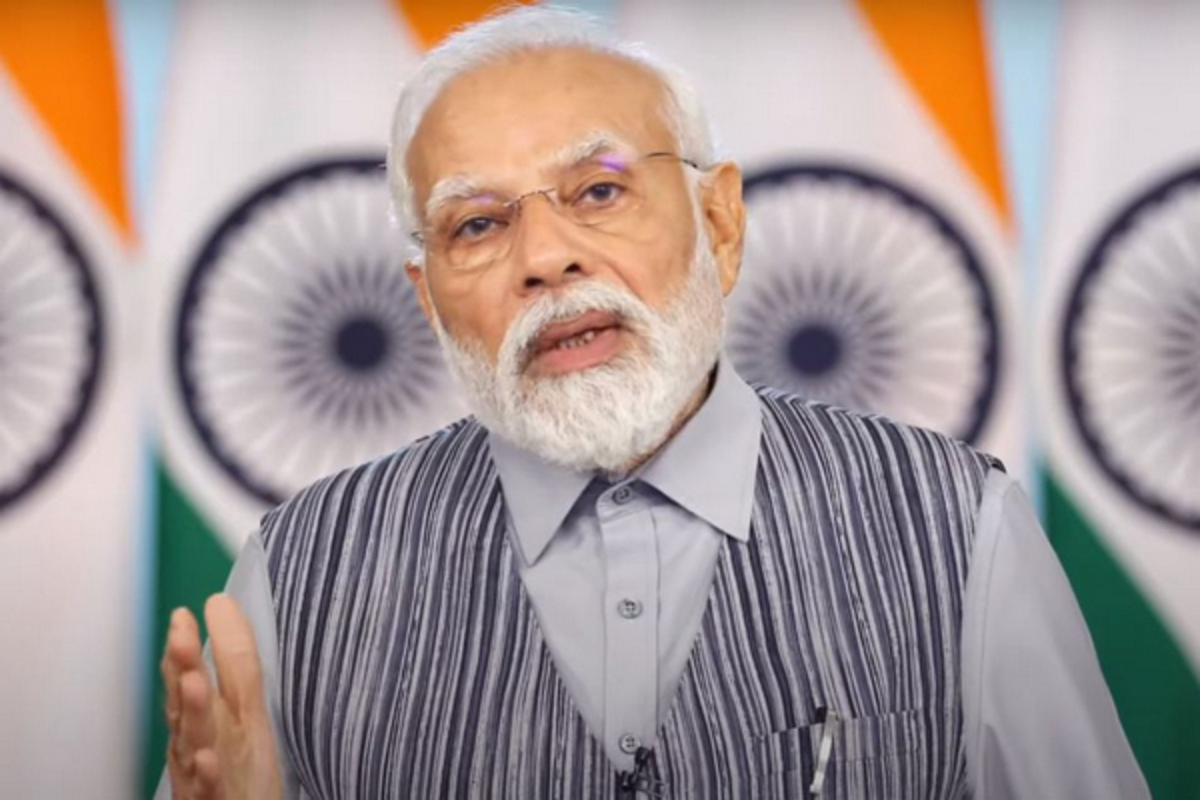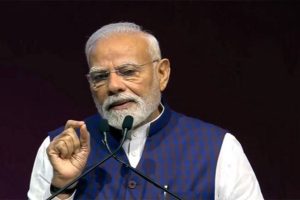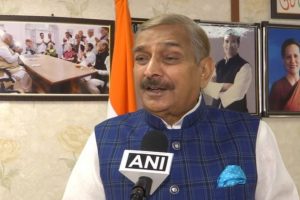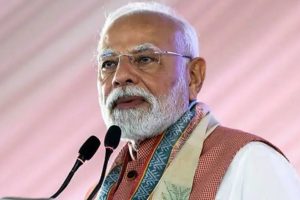Prime Minister Narendra Modi detailed India’s foreign policy approach, describing it as “mix-and-match diplomacy” focused on pragmatic engagement aligned with national interests.
“The world is interconnected as well as interdependent,” PM Modi stated in a candid interview with the UK-based Financial Times.
He also underscored the complexity of global dynamics while emphasising that India’s foremost guiding principle in foreign affairs is its national interest.
This approach, according to PM Modi, enables India to engage with various nations in a manner that respects mutual interests and acknowledges the intricate nature of contemporary geopolitics.
“Our foremost guiding principle in foreign affairs is our national interest,” PM Modi said, adding, “This stance allows us to engage with various nations in a manner that respects mutual interests and acknowledges the complexities of contemporary geopolitics.”
When questioned about India’s relationship with the United States and whether it could be characterised as an alliance, PM Modi highlighted the “upward trajectory” of relations. Despite recent allegations involving an Indian government official in a plot on US soil, the Prime Minister asserted that the India-US relationship is now broader in engagement, deeper in understanding, and warmer in friendship than ever before.
“Regarding the best words to describe this relationship, I leave it to you,” he said, adding, “Today, the India-US relationship is broader in engagement, deeper in understanding, and warmer in friendship than ever before.”
Significantly, the US Justice Department had claimed that an Indian government employee, who was not identified in the indictment filed in a federal court in Manhattan, recruited a fellow Indian identified as Nikhil Gupta to hire a hitman to allegedly assassinate India designate terrorist Gurpatwant Singh Pannun, who is a dual-citizen of the US and Canada.
It added that the alleged plot was foiled by the US authorities.
In the interview with the Financial Times, PM Modi responded to these claims, saying that he would “look into” any evidence and adding that “few incidents” would not affect US-India ties.
“If a citizen of ours has done anything good or bad, we are ready to look into it. Our commitment is to the rule of law,” the Prime Minister said.
Further, the interview touched upon India’s active role on the global stage, including hosting the “Voice of the Global South” summit and successfully advocating for the African Union’s admission as a permanent G20 member in September.
According to Financial Times, PM Modi maintained “close ties” with Russia’s president, Vladimir Putin, in keeping with India’s decades-old non-alignment policy but also cemented a “closer-than-ever” relationship with Joe Biden during a June state visit to the US.
During his state visit to the US in June this year, Prime Minister Modi said that the partnership between India and the United States will make the world better in the 21st century.
Speaking about the potential of India-US defence industrial cooperation, the Prime Minister in the US said that the decision to manufacture fighter jet engines by General Electric will prove to be a milestone in the journey of India’s defence sector. He also said the Artemis Accord signed by India and America is going to open many possibilities in the space sector.
A joint statement during PM Modi’s official state visit to the United States said that PM Modi and US President Joe Biden also welcomed the depth and pace of enhanced consultations between the two governments on regional issues, including South Asia, the Indo-Pacific and East Asia.
Further, in the Financial Times interview, PM Modi also addressed the Israel-Hamas war, outlining India’s stance on a two-state solution and delivering humanitarian aid to Gaza. While refraining from direct criticism of Benjamin Netanyahu’s government, PM Modi reiterated India’s commitment to fostering peace in the region.
“I remain in touch with the leaders in the region. If there is anything India can do to take forward efforts towards peace, we will certainly do so,” Modi affirmed, highlighting India’s proactive role in contributing to regional stability.
India is walking a tightrope on the Israel-Palestine issue following the devastating attacks by Hamas that left over 1,200 Israelis dead, with New Delhi expressing solidarity with Tel Aviv but advocating the two state solution for peace in the middle-east.
India has sent humanitarian aid for the people of Palestine, comprising medical aid and disaster relief material, and PM Modi was among the first global leaders to talk to the President of the Palestinian Authority, Mahmoud Abbas.
In his address to the 2nd Voice of the Global South Summit, PM Modi said, “We are all seeing that new challenges are emerging from the events in the West Asia region. India has condemned the terrorist attack in Israel on October 7.
We have exercised restraint as well. We have given emphasis on dialogue and diplomacy. We also strongly condemn the deaths of civilians in the conflict between Israel and Hamas. After talking to Palestinian President Mahmoud Abbas, we have also sent humanitarian aid to the people of Palestine. This is the time when the countries of the Global South should unite for the greater global good.”





